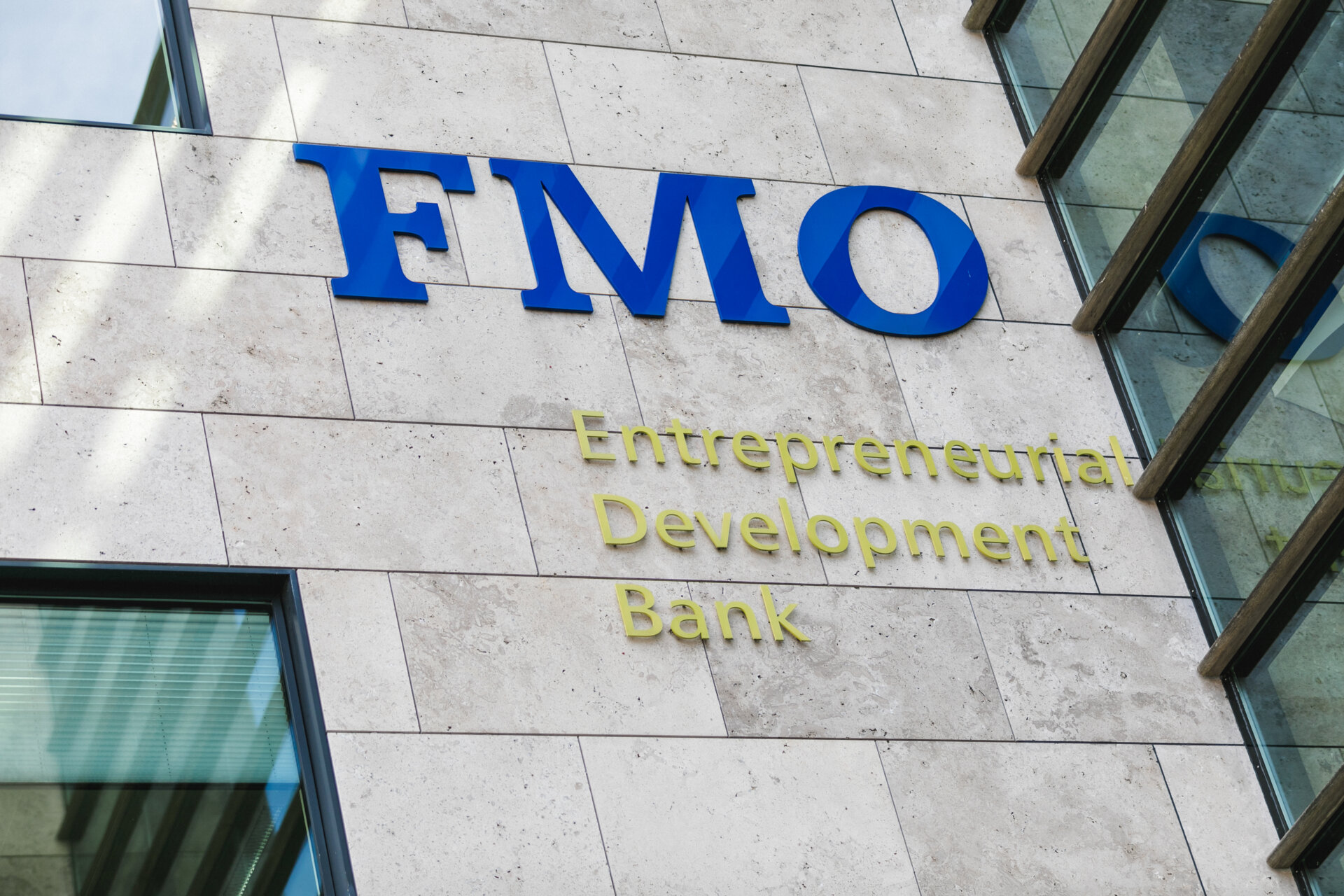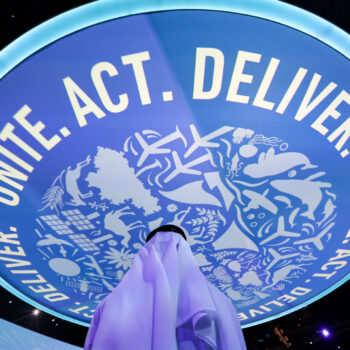FMO, the Dutch Entrepreneurial Development Bank, is the latest institution to be assessed in its Paris alignment progress by E3G’s Public Bank Climate Tracker Matrix. The result of this assessment reveals FMO to be on its way to achieving full Paris Alignment.
In the wake of COP28, where the sense of urgency became clear amid an ever-shrinking window to limit global warming, Development Finance Institutions (DFIs) remain key contributors to delivering climate safety. Given the vast remaining shortfalls in total climate finance, it is increasingly clear that the role of DFIs in mobilising private sector financing will be critical to achieving the Paris Agreement goals.
As a regulated bank (with 51% ownership by the Dutch Government) that has a specific mandate to support the private sector in low- and middle- income countries, FMO is uniquely positioned to contribute to closing this gap and furthering the climate transition.
FMO is the first DFI E3G has assessed that exclusively supports the private sector. E3G’s assessment of FMO’s Paris alignment progress considers its unique characteristics, and ultimately reveals the Bank to be performing very well in several areas, showing strong initiative on climate action. At the same time, there is still scope for improvement in certain areas.
Frontrunning initiative on climate action
As of 2023, FMO is currently undertaking a dedicated workstream on Paris alignment, including developing methodologies and internal capacity to implement an investment-level Paris alignment review for new transactions. Whilst this workstream is expected to be finalised in 2024 and operationalized in 2025, the Bank is already well advanced in aligning with the Paris Agreement in several key areas.
- Climate change is effectively mainstreamed throughout FMO’s core strategic documents. FMO’s core strategies are among the most clearly committed to climate change of any assessed in the E3G Matrix. Both FMO’s Strategy 2030 and Climate Action Plan explicitly refer to the Paris Agreement and extensively integrate climate considerations for both mitigation and adaptation. The Bank’s ‘three-SDG’ focus includes SDG 13 on climate action as a core area. As part of this, FMO has pledged to expand its SDG 13 investment portfolio to €10 billion by 2030, align new transactions and its portfolio with a 1.5° C pathway, and ultimately achieve a net-zero portfolio by 2050.
- FMO has strong procedures in place for GHG accounting and reduction. At the portfolio level, the Bank reports on financed absolute emissions and financed avoided emissions ex post for the entirety of the portfolio. Impressively, this includes emission scopes 1 to 3. This is complemented by the portfolio wide net-zero target mentioned above, and a dedicated power sector emissions reduction target. At the project level, the Bank’s accounting inclusion threshold ex ante and ex post for all direct investments is comparable with best practice.
- FMO has committed to fossil fuel phase-out by 2026 for direct investments, having developed comprehensive ‘Transition Criteria’ for the interim. FMO’s exclusion list already prohibits financing coal and associated infrastructure, as well as upstream oil and gas. Until complete fossil fuel exclusion by 2026, midstream operations and downstream gas are governed by extensive ‘Transition Criteria’ designed to support a managed phase-out.
Areas for improvement
Despite its noteworthy progress, there are nevertheless specific areas where there remains room for improvement.
- FMO should implement a zero net deforestation target and a screening process for biodiversity positive co-benefits across the board. Despite its noteworthy €1 billion forestry portfolio commitment by 2030, FMO’s policies do not currently guarantee zero net deforestation from FMO financed activities. It should also build on current measures to conserve biodiversity by actively pursuing biodiversity positive investments. This should include screening for co-benefits to ensure a robust, biodiversity-positive, pipeline.
- FMO should develop country level strategies (in a manner that reflects their capacity) to guide their engagement with customers. FMO is currently developing strategic frameworks for customer engagement that will consider country contexts. E3G encourages the Bank to expand these efforts and create country-level strategies/guidance that will ensure projects align with national development priorities. Collaborating with Public Development Banks operating in overlapping territories could be a viable solution to address capacity challenges faced by private-finance Development Financial Institutions (DFIs) without parent public DFI support.
- FMO should enhance its climate finance transparency. As a first step, FMO should consider publicly disclosing project-level climate finance data in a machine-readable format. Moreover, the Bank should intensify efforts concerning intermediary clients’ utilisation of FMO funds and seek to ensure data availability. Considering the extensive policy framework FMO has developed for its direct investments, it is critical that it can ensure funds channelled through intermediaries remains Paris aligned at end-use.
Click here to learn more about FMO’s alignment with the Paris Agreement and what E3G´s recommendations are.


